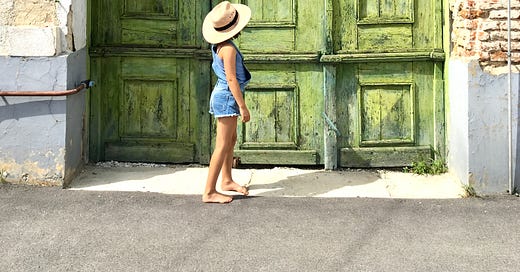10 THINGS* I LOVE ABOUT LIVING ABROAD...
and what I’ve found funny, charming, and hard–so far
Hello!
I’m back after a week starting school, sick kids (mostly better now!), and deadlines, and hoping to find you on the other side of a successful la rentrée, a rather useful French term I just learned (here) for the first weeks in September, when returning to work and school. I hope all of you were able to say goodbye to summer with a peaceful hear…




